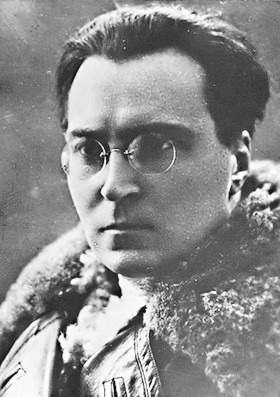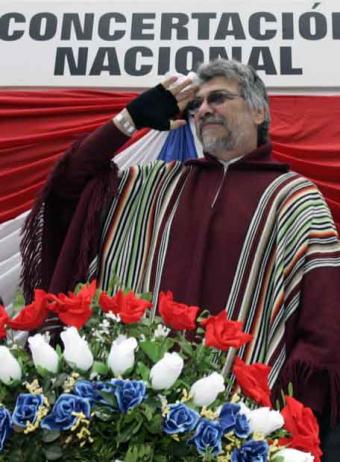Call for a ‘Seattle’ approach to Copenhagen climate talks, Africans demand reparations

By Patrick Bond
September 5, 2009 – Durban -- Here’s a fairly simple choice: the global North would pay the hard-hit global South to deal with the climate crisis, either through the complicated, corrupt, controversial ``Clean Development Mechanism’ (CDM), whose projects have plenty of damaging sideeffects to communities, or instead pay through other mechanisms that must provide financing quickly, transparently and decisively to achieve genuine income compensation plus renewable energy to the masses.
The Copenhagen climate summit in December is all about the former choice, because the power bloc in Europe and the US have put carbon trading at the core of their emissions reduction strategy, while the two largest emitters of carbon in the Third World, China and India, are the main beneficiaries of CDM financing.
Young Venezuelan revolutionary and environmentalist: `Tomorrow is too late’

“More than just an economic crisis, what humanity faces today is a systemic crisis”, Rangel said. “We can see this if we look at the energy crisis, and the social crisis that is generating a lot of poverty and misery. But above all, we can see this in the ecological crisis. There is a grand ecological crisis in the world today and I believe we are at a pivotal point, a moment when we need to make tough decisions. The current mode of development is incompatible with life.”
Rangel explained that this is why, “in Venezuela, we believe in a model for life and sustainable development where we can generate the greatest possible sum of happiness, not only for this generation, but for future generations”.
Suffering and struggle in rural China

Will the Boat Sink the Water? The
Life of Chinese Peasants.
By Chen Guidi and Wu Chuntao.
New York: Public Affairs 2006
For people to people solidarity with Vietnam

By Peter Boyle
September 1, 2009 -- There has been a lot of media coverage in Australia around the August 31 return of the remains of the last two Australian armed forces personnel – Canberra bomber pilots – who were missing in action in the Vietnam War. But none of the articles put this in the context of the death and damage inflicted on the Vietnamese people by the United States and its ally Australia.
Operating as part of the US Air Force's 35th Tactical Fighter Wing, Royal Australian Air Force (RAAF) Canberra bombers flew 6% of the wing's sorties but inflicted 16% of the damage. Overall, 11,963 sorties were flown by the Canberra bombers in Vietnam and 76,389 bombs were dropped. Two Canberra bombers were lost in the process.
Total Australian military casualties in the Vietnam War were 521 killed and 2398 wounded, but the numerous high-altitude bombing raids carried out by Australia's Canberra bombers alone would have inflicted much higher casualties.

By Giles Ji Ungpakorn
September 3, 2009 -- On August 28, Daranee Charnchoengsilpakul (known by her nickname as “Da Torpedo”) was sentenced to 18 years in prison for lese majeste (insulting the royal family) after a secret trial in Bangkok. This is another example of how Thailand is rapidly coming to resemble authoritarian countries like North Korea. Other examples are the use of the Internal Security Law to prevent peaceful demonstrations by the pro-democracy ``Redshirts'' and the way that the unelected prime minister, Abhisit Vejjajiva, urged the military to kill demonstrators in April. What is also shocking is the way that there has been complete silence from so-called “human rights activists” and NGOs and academics in Thailand about what has been going on. This can only be described as shameful. Amnesty International's long-term policy of turning its back on Thai prisoners of conscience, jailed over lese majeste, is also appalling. It throws into question the role of that organisation.
* * *
Victor Serge: `dishonest authoritarian', `anti-worker anarchist' or revolutionary Bolshevik?

[The following exchanges were first published in the US socialist magazine Against the Current. They have been posted at Links International Journal of Socialist Renewal with permission. Susan Weissman is the author of Victor Serge: The Course is set on Hope and editor of The Ideas of Victor Serge and Victor Serge: Russia Twenty Years After. She is a member of the editorial boards of Against the Current and Critique. The first essay is adapted from a section of a paper she delivered at a July 2008 conference on Trotsky’s legacy and first appeared in Against the Current, issue 136, September-October 2008. Following that is a response from Ernie Haberkern and reply by Susan Weissman. Some of Victor Serge's writings are available at the Marxists Internet Archive and at Resistance Books.]
By Susan Weissman
`Amanzi Ngawethu' (water is ours); Health and environmental victories for South African activists
On September 2 and 3, 2009, the Constitutional Court of South Africa will hear the final appeal in a case brought by five Soweto residents challenging Johannesburg's discriminatory prepaid water meter system. Their six-year legal battle would reaffirm the constitutional right to water for all South Africans.
Low-income communities in Johannesburg's townships do not have sufficient water resources and do not receive the same water services as residents in wealthier, often white, suburbs. Yet, the Bill of Rights of South Africa guarantees everyone's right to have access to sufficient water.
Paraguay: Change is still to come; The first year of Fernando Lugo’s government

By Adolfo Giméne, translated by Federico Fuentes for Links International Journal of Socialist Renewal
August 14, 2009 – Asunción -- The anniversary of the first year of Fernando Lugo’s government coincided with a five-day national protest (August 10-15) organised by the United Popular Space (Espacio Unitario Popular, EUP), a coming together of many social organisations and left parties [1], with the support of figures from diverse political sectors, including the governor of the department of San Pedro, Jose Pakova Ledesma, from the Authentic Radical Liberal Party (Partido Liberal Radical Auténtico, PLRA). [Lugo was elected president on April 20, 2008, but did not formally take office until August 15.]
Indonesia: Parliament of the Streets demands free education and health care, housing for the poor
Photos and text by Ulfa Ilyas
On August 25, 2009, a demonstration was held in Jakarta, Indonesia, organised by the Parliament of the Streets Alliance at the inauguration of newly elected members of parliament. The protesters demanded free education for all citizens, free health programs, employment and housing programs for poor people.
Henri Anggoro, a leader of the Poor People’s Union (Serikat Rakyat Miskin Indonesia, SRMI), which organises in the sprawling shanty towns, said that experience has shown that parliament ignores the interests of the people. "They only represent the interests of a handful of people, rather than representing the people who elected them", he said.
Industrial action for peace: The Communist Party of Australia and antiwar activity before 1960
United States: Ted Kennedy -- The myth of the `liberal lion'

Ted Kennedy during his first campaign for US Senate in 1962.
By Lance Selfa
August 28, 2009 -- Democratic Party senator Ted Kennedy's political career reflects the course of US liberalism, from its heyday in the 1960s to its sorry state today.
For decades, Ted Kennedy was the bogeyman used by conservatives in their fundraising appeals to raise millions of dollars. To them, the liberal Kennedy seemed to represent everything they hated--there was no easier way to get a right-wing crowd booing and hissing than to mention Kennedy's name.
So it was more than a little jarring to hear conservatives sing Kennedy's praises for his "bipartisanship" in the wake of Kennedy's death from brain cancer on August 25.
"There is nobody else like him", Republican Senator Judd Gregg told the Associated Press. "If he had been physically up to it and been engaged on this [the current health-care reform debate], we probably would have an agreement by now."
Yeah, right.
Kanaky: Interview with jailed pro-independence trade union leader Gérard Jodar

This interview with Gérard Jodar, president of the pro-independence trade union federation USTKE (Union of Kanak and Exploited Workers), was published in Libération, issue #14790, on August 17 2009. He was interviewed by Matthieu Ecoiffier. Translated into English for Links International Journal of Socialist Renewal by Annolies Truman.
Sentenced at the end of June 2009 to a year in prison for ``hindering the circulation of an aircraft'' [click HERE for background information to the struggle], Gérard Jodar is one of very few trade unionists to be imprisoned in France –- and his lawyers’ application for a lesser sentence has just been rejected by the appeals judge of the Noumea Supreme Court.
Gérard Jodar explains the conditions of his detention as well as the situation on the ``Pebble’’ [the nickname for New Caledonia, the colonial name for the South Pacific territory of Kanaky, which remains a colonial possession of France -- translator].